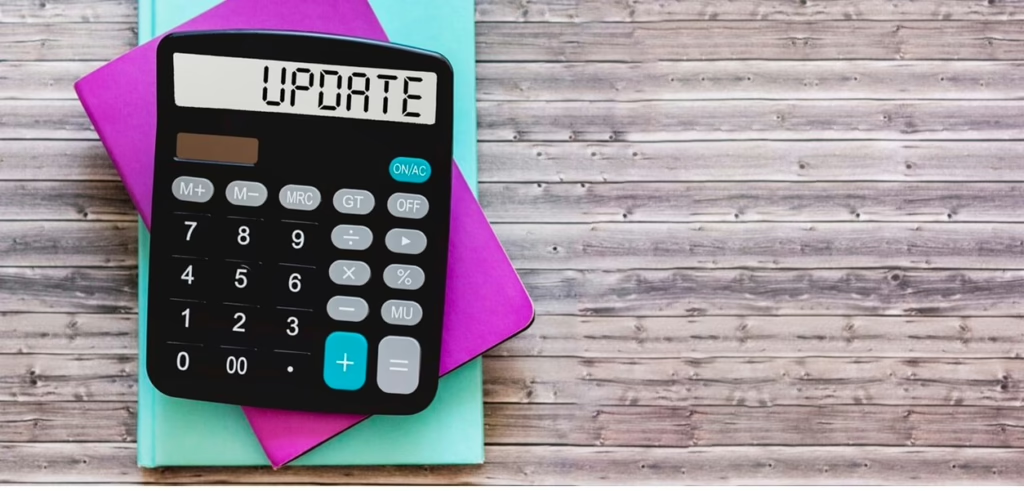
As evidenced in the strategy suggested by Andrew Dunkerley for June and Marcus, a downturn in assets is not 100% negative for those receiving Age Pension entitlements. Andrew projected the result of the decline in the couple’s assets would lead to a boost of more than $3,000 in Age Pension benefits per annum. How so? Because anyone receiving the Age Pension will be assessed using a means test and their assets are deemed to earn income. By keeping Centrelink updated if your assets fall lower, it is likely you will be rewarded with a higher fortnightly payment.
Need to know
Higher income is appealing, but there are a couple of caveats here.
Some members will need to report changes to super which is in accumulation mode, others will have their money in an Account-Based Pension (ABP), others in private investments (local and global shares) and still others in a Self-Managed Super Fund (SMSF). Reporting requirements can vary depending upon where your assets are held.
As noted by Steven Sadler, Head of the Customer Service Team, the documents required may vary, so it might be easier to contact our entitlements team for an explanation. If you have an ABP it’s relatively simple – you will need to request an updated schedule. But if your fund is in accumulation it is much trickier because Centrelink needs to see the units of the accumulation account, not just the total balance.
And don’t forget, the obligation to inform Centrelink of meaningful (above $2000) asset changes goes both ways. Should your assets rise again you will need to advise Centrelink. If you don’t, then when Centrelink becomes aware of the higher balance, you risk having a debt raised against you for previous overpayments.
Further information
We have previously covered the details of what you need to do to keep Centrelink up to date. Here are two recent articles which explain the ‘what’ you need to do and the second, detailing the ‘how’ you go about doing this.
How to advise the change in your asset balance
If you are planning on advising Centrelink of the change in the value of your assets, you can do this in one of the following ways:
• Online via myGov – Sign in and go to ‘My details’ to update your information.
• Express Plus Centrelink App – Update income, assets, and personal details using your phone.
• Centrelink phone self-service – Call and follow the prompts.
• In person or over the phone – If you don’t have access to online services, you can call the Centrelink Older Australians line (132 300) or visit a Centrelink service centre.
You can also authorise someone to deal with Centrelink on your behalf if needed.
Alternatively, those members of Retirement Essentials who are on a Keeping Your Pension plan need only to contact our call centre and ask Retirement Essentials to update their Centrelink statement as we are the authorised representative. Those who are not on this plan may wish to:
- check their expected changes using the free Age Pension Entitlements Calculator, or
- book an Entitlements Consultation.
And lastly, those who are close to being eligible (but prevented by holding assets over the limit) might also wish to check the free Age Pension Entitlements Calculator to see if they do now qualify for a part-Age Pension and the accompanying Pension Concession Card.
Do you keep an active eye on your asset levels?
Do you find it easy to keep Centrelink up to date on your balance?






Just to clarify-
I know you have to tell Centrelink if your situation changes significantly. But, with your Super Balance in accumulation ( which goes up or down each day), don’t they deem you as earning so much in a year. So, wouldn’t this cover most rises in your Super balance until the 30th June when you have to inform Centrelink of your end of financial year balance?
Hi Mx SK, what you are referring to is Centrelink’s way to determine the income generated by the financial asset, not it’s actual value. Income deeming is part of the reason why Centrelink need updates on the balance because just as the balance rises and falls, so too does the amount of income it is deemed to generate.
I am retired but have an Accumulation account and provided centrelink with a an updated document from my super fund on 21-3-2025- they only changed the units variations but not the unit price so CL show minimal change in the actual balance and minimal change in our part pension amounts they are still using pre tariff unit prices (feb bulk update from Super fund) for the March adjustment- tried 1300 no several times but kept dropping out after 40-45 minutes- local CL office is just way to busy – about 30 people in the queue when i went in yesterday so i just walked out !
Any comments assistance appreciated
Hi Rod, the only way to speak with Centrelink is by calling the Older Australians line on 132 300 (and yes waiting on hold) or attending a service centre to speak with them in person (and yes, waiting in the queue). You can minimise the wait time by getting in to either queue right on 8am when Centrelink opens.
We have a SMSF. It has dropped $60k. That is signicant. Can we get a reassessment done on our current balance before annual review time.
Hi Sue, yes you can get your Age Pension recalculated, you just need to give Centrelink updated member statements for your SMSF.
does a defined benefits fund, alter a claim for an age pension.
My deemed income prevented me getting a part pension, what updates will centre link want.
Hi John, Yes a Defined Benefit Pension (DBP) can affect your Age Pension, mostly under the income test. Centrelink apply specific rules to DBPs, and grandfathering rules may apply if your pension started before 1 July 2007.
If deemed income from your other financial assets is preventing you getting a part pension, updating Centrelink with the current balance might help: you are updating Centrelink regarding your situation you could provide them with an update of the financial assets they are deeming which is affecting your eligibility. This guide on updating Centrelink might be helpful to you.
We can also help you with understanding how your Defined Benefit Fund is affecting your eligibility in our Age Pension Consulations, you can book here